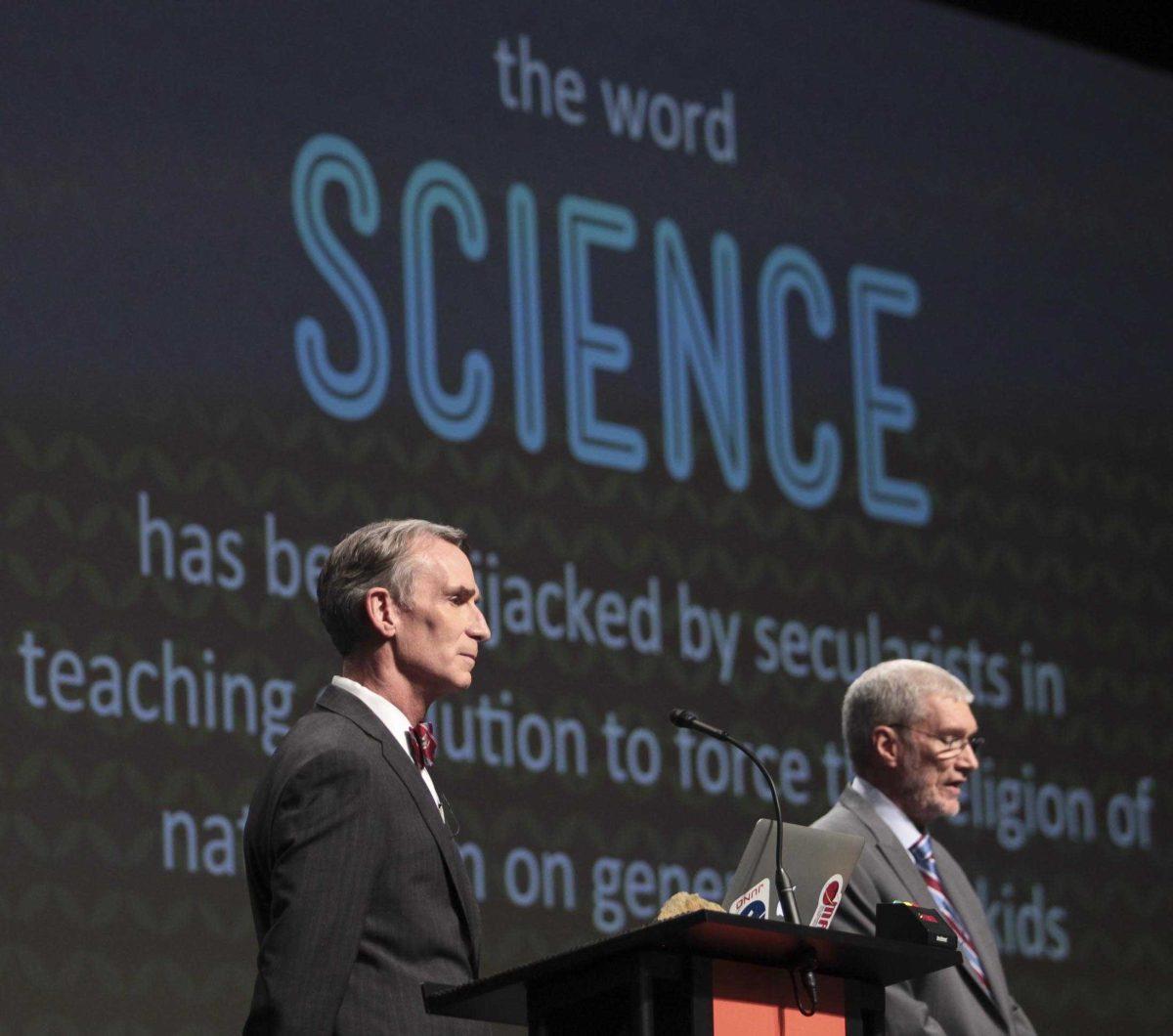The question of whether there is a God is one for the ages. It’s surely one for this age, no matter how modern the era or how scientific.
On Feb. 4, “Science Guy” Bill Nye debated Ken Ham, founder of the Creation Museum, on whether creationism was still a viable model of origins.
The debate is more than relevant for discussion in coffee shops, on national television and especially on college campuses.
Should evolutionists be correct, creationists would lose very little. However, if the creationists are right, the consequences are much more weighted.
Merriam-Webster defines evolution as “a theory that the differences between modern plants and animals are because of changes that happened by a natural process over a very long time.” The definition of creationism is listed as “the belief that God created all things out of nothing as described in the Bible and that therefore the theory of evolution is incorrect.”
Darwin’s theory is just that — a theory. Like the Bible, it is based primarily on historical evidence. This evidence is based on events that could have happened in the past. It is looking at the present to fill in gaps of history. For creationists, it is the belief that a God has always been there; for evolutionists, it is possibilities like the Big Bang. The idea that something could ever come from nothing without intelligent design does not suit me.
For instance, a clay pot sits on a windowsill. It is real. A person can rightfully believe that a potter is responsible for the work. However, that individual did not see anyone shape this piece of earth into a thing. They cannot prove there was an artist by using the five senses. It is through their rationale and seeing the pot before them that they conclude that because there is a creation, there is a creator.
Now, I suppose you want a little science.
It is quite true that humans and primates share nearly the same genetic makeup. It is also true that mankind shares around half of its DNA with a banana. These comparisons come up often in the debate of creationism and evolution. The absolute complexity and difference within an organism’s genome is astounding. Therefore, no matter how similar a species’ makeup, even 1 percent is a vast difference when analyzed.
DNA is made of four bases: cytosine, thymine, guanine and adenine. The bases help to make up an organism’s “internal code,” so to speak. These same four bases are found in all DNA but are used to create wide diversity. So much is brought about from so little. It appears to be more than happenstance.
Darwin’s publications are extraordinary and provide the groundwork for modern biology. “On Origin of Species” fails to provide more scientific evidence — which is different from historical evidence — about the origin of life than the Bible. Those studying evolution have made some ground breaking discoveries in the biological realm.
Although these discoveries aid in learning more about the makeup of species, they do little to prove the origin. The missing links are still missing. The hominids that have been found were either revealed to be hoaxes or are just fragments of bones that may not even be of the same species.
There are many angles and sides to the debate. Both of these beliefs deserve time and respect because they are both useful in various regards. I don’t believe one’s faith should be mildly important. It is either of great importance or of no importance, and anything of great importance deserves talking about.
Justin Stafford is a 20-year-old mass communication junior from Walker, La.
Opinion: God vs. Evolution
February 11, 2014
Creation Museum head Ken Ham, right, speaks during a debate on evolution with TV’s “Science Guy” Bill Nye, at the Creation Museum Tuesday, Feb. 4, 2014, in Petersburg, Ky. Ham believes the Earth was created 6,000 years ago by God and is told strictly through the Bible. Nye says he is worried the U.S. will not move forward if creationism is taught to children. (AP Photo/The Courier-Journal, Matt Stone) NO SALES; MAGS OUT; NO ARCHIVE; MANDATORY CREDIT
More to Discover








